Rainy Dog (1997)
Directed by: Takashi Miike
Written by: Seigo Inoue
Starring: Li Wei Chang, Shih Chang, Shô Aikawa, Xianmei Chen
AKA GOKUDO KUROSHAKAI
Japan
ON DUAL FORMAT BLU-RAY AND DVD: 16TH JAN, from ARROW VIDEO in their BLACK SOCIETY TRILOGY SET
RUNNING TIME: 96 min
REVIEWED BY: Dr Lenera, Official HCF Critic
Yuuji is fired from the yakuza syndicate ran by his brother, but soon finds work in Taiwan for another boss as a pay-per-hit assassin, killing members of other syndicates. His life starts to become more complicated when a woman he slept with several years ago turns up out of the blue to drop their son off at his house, somebody whom he didn’t know even existed. The boy, who is mute, begins to follow him around, but Yuuji isn’t interested in him and is just intent on doing his job. However, Yuuji’s next target happens to be a lawyer with ties to his brother’s syndicate….
After Shinjuku Triad Society, I expected something very similar with this second instalment of Takashi Miike’s Black Society Trilogy, films which don’t seem to be very related but which do share certain themes. In fact Rainy Dog, while still set in the gangster world, is quite a different piece, a much more sedate and even melancholy work in which the constant rain mirrors the central character’s feelings. The basic premise is a well worn one and there are distinct elements of Leon [there’s even a scene where the two principal characters are walking down a road which is staged and shot in almost exactly the same way as a similar scene in the Luc Besson masterpiece] and Takeshi Kitano’s Kikujiro in this film, but this kind of story almost always engages and provokes a strong emotional response in the viewer, and it certainly does in the case of Rainy Dog, which might be lacking in much of the craziness and over the top violence which Miike’s is mostly known for, but which as a piece of filmmaking is – at least to my eyes – a considerable advance on Shinjuku Triad Society.
As with that film, our hero – or should that be anti-hero? – is in some ways a racial outcast, a Japanese mobster forced to relocate to Taiwan. His only link with his homeland seems to be watching Gamera [the same studio’s giant flying turtle created as an answer to Toho’s Godzilla series] movies. He works at night as a butcher, the unusual first choice of shot for the film being of rows of skinned animal carcasses in the back of a lorry, until he gets a more lucrative job as an assassin. However, the past just won’t stop catching up with him. Tomorowo Taguchi shows up again briefly as a gangster who continually follows him around and wants to take revenge for some undefined past act Yuuji committed. One realises that the typical Miike insanity isn’t totally absent from this film when we see Taguchi’s character taking an outdoor pee and some large scratching on the emulsion [Japanese movie censorship may be extremely lax overall, but you’re not allowed shots of genitals] makes it look like the guy’s penis is enormous. The other unwanted visitors are an ex-girlfriend [though that term’s probabaly an exaggeration] and a little boy whom she claims is his son. The woman just dumps the child on him and buggers off. Yuuji begins to carry out his hits, looking rather conspicuous in his white suit but also rather cool in Chow-Yun Fat fashion [in fact he’s obviously so cool that he takes his gun out before he actually needs to, obviously not giving a damn] and in direct view of the boy who can’t tell anyone because he’s mute. Yuuji strides ahead ignoring the child who struggles to keep up with him, then sleeps with a prostitute called Lilli and takes drugs with her while the boy has to forage for food in rubbish bags and sleep under a box but forms a friendship with an abandoned dog.
These scenes are quite heartbreaking and I really hated Yuuji by this point, which is no doubt what Miike and screenwriter Seigo Inoue intended. Miike sure likes to have rather unsympathetic characters as his main protagonists but certainly doesn’t glorify what they do, though it’s clear that their backgrounds are obviously a major factor in why they are the way they are. Then Yuuji kills a guy who’s employed by his brother and he, Lilli and the boy have to go on the run. The film takes pains to show us the grieving brother of his dead target and thereby allows us to understand why he wants vengeance. We’re asked to think of all the other folk Yuuji has probaly killed, and the effect of their deaths on others. The scene when Yuuji eventually melts and shows some human emotion is almost a “punch in the air” moment, yet refuses to go over the top in the way a Hollywood version of this story probably would do. And this is a Miike film, so we know that things are not necessarily going to end well. The final scenes are actually very cliched but this doesn’t matter too much as by now we really care about the characters and it all becomes quite moving, and I’m not sure if that particular word is used very often to describe a Miike film.
What with father saying little and son saying nothing at all, there’s not a lot of dialogue in this film, and sometimes Miike and his cinematographer Yasushi Shimamura do seem to be more interested in the constant rain that pours and pours and pours, but there’s no doubt that it helps to provide the film’s gloomy but compelling atmosphere and enhances the feelings of isolation felt by the three main characters. It’s not really obvious that Yuuji and Lilli are falling in love and perhaps it’s more a case of loneliness [Lilli even seems separated from the other prostitutes] and mutual need. The two are really quite distant with each other, are usually shown separate from each other, and we don’t even see them kiss. In terms of action and bloodshed there certainly is some, especially towards the end, but violence tends to be cut away from or partly obscured. There’s one clumsy moment when several people shoot at a car at close range but hit absolutely nothing, but it doesn’t matter too much because this film is really more of a drama and for the most part works well as one. Miike isn’t interested in being sensationalist or winding people up in this movie; he’s just out to tell a simple morality tale with powerful themes in murky, drab settings which don’t always make for the most visually appealing film but definitely help provide the right feel, though I did notice that, as Yuuji changes, the sun and reds become more prominent.
Shô Aikawa does fine as the hitman who superstitiously won’t carry out a hit in the rain because it’s supposed to be bad luck, being pretty good at suggestive little bits of business which flesh out his character, though Xianmei Chen doesn’t really have very much to work with as Lilli. The unnamed child actor succeeds in being cute though he’s not the most expressive of kids. Aside from Aikawa and Taguchi the entire cast of the entirely Taiwan-shot picture is Chinese so you here more Chinese than Japanese throughout. With a much improved score [from the one in the earlier film] by Kôji Endô supplying both Japanese percussion and Ry Cooder-ish guitar licks, Rainy Dog may not really very original but is still a very compelling and rewarding watch that manages to do quite a lot in its understated fashion, though I understand that it’s considered by many to be atypical Miike. I don’t know if that’ll prove to be a good thing or not.
Rating: 









Rainy Dog is a better looking film overall than Shinjuku Triad Society, so it’s no surprise that Arrow’s Blu-ray of this film looks better than the one of the previous film. Much of the film does look muted and glum but that was clearly intended. Depth and sharpness are good enough, if hardly examplary. Again, Arrow have got Tom Mes to record a new commentary which is as interesting and detailed as before, if equally slow and almost sleep inducing. Then there’s a new interview with Tomorowo Toguchi who talks in some depth about his career and his roles in the Black Society films.
SPECIAL EDITION CONTENTS:
*High Definition digital transfer
*Original uncompressed stereo audio
*Optional English subtitles
*New interview with actor Tomorowo Toguchi
*New audio commentary by Miike biographer Tom Mes
*Original theatrical trailer
*Reversible sleeve featuring original and newly commissioned artwork by Chris Malbon
FIRST PRESSING ONLY: Illustrated collector’s booklet featuring new writing on the film

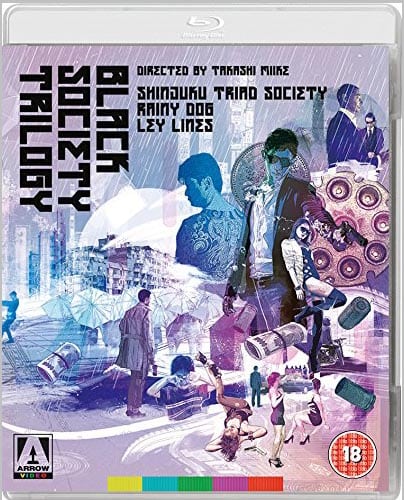
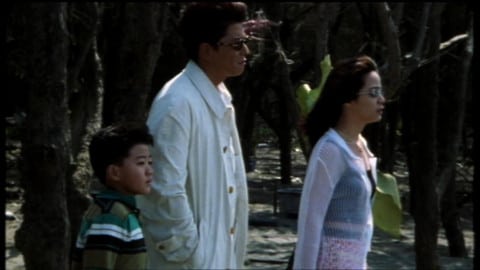
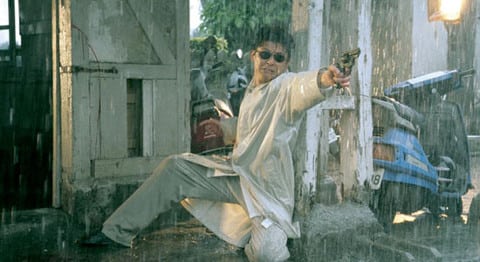

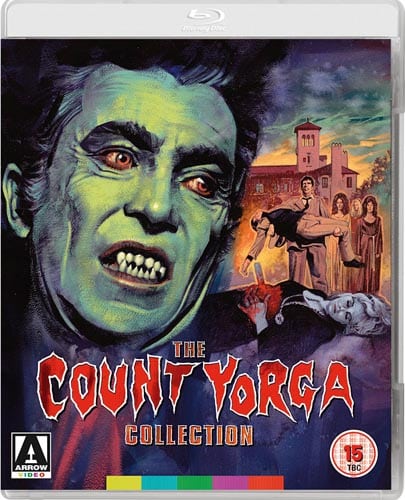
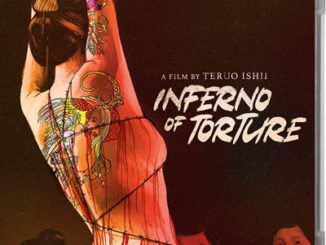
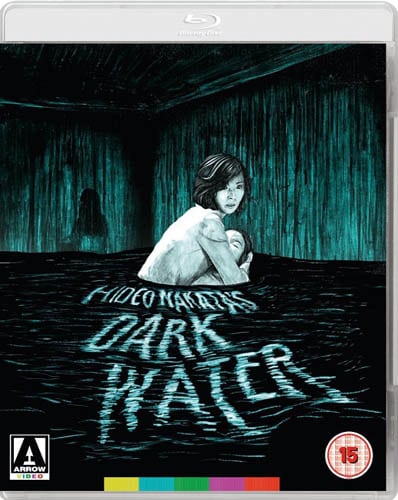
Be the first to comment